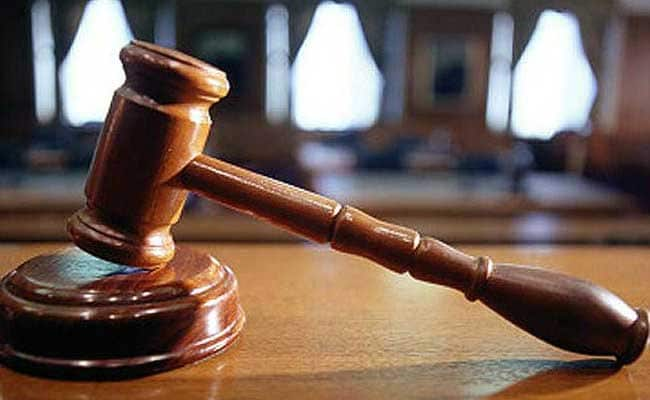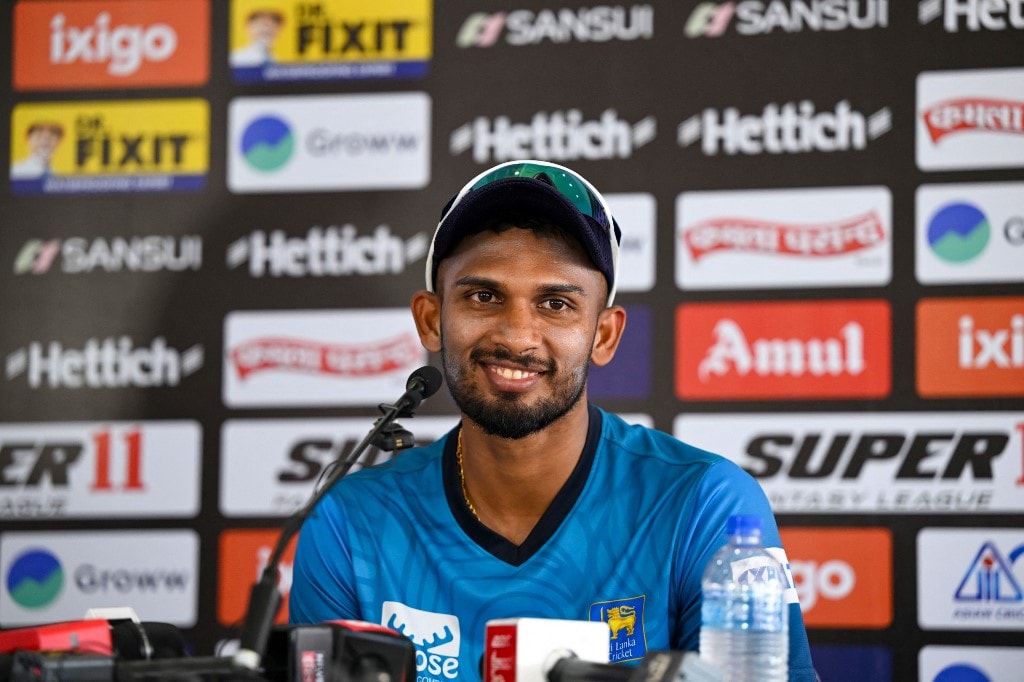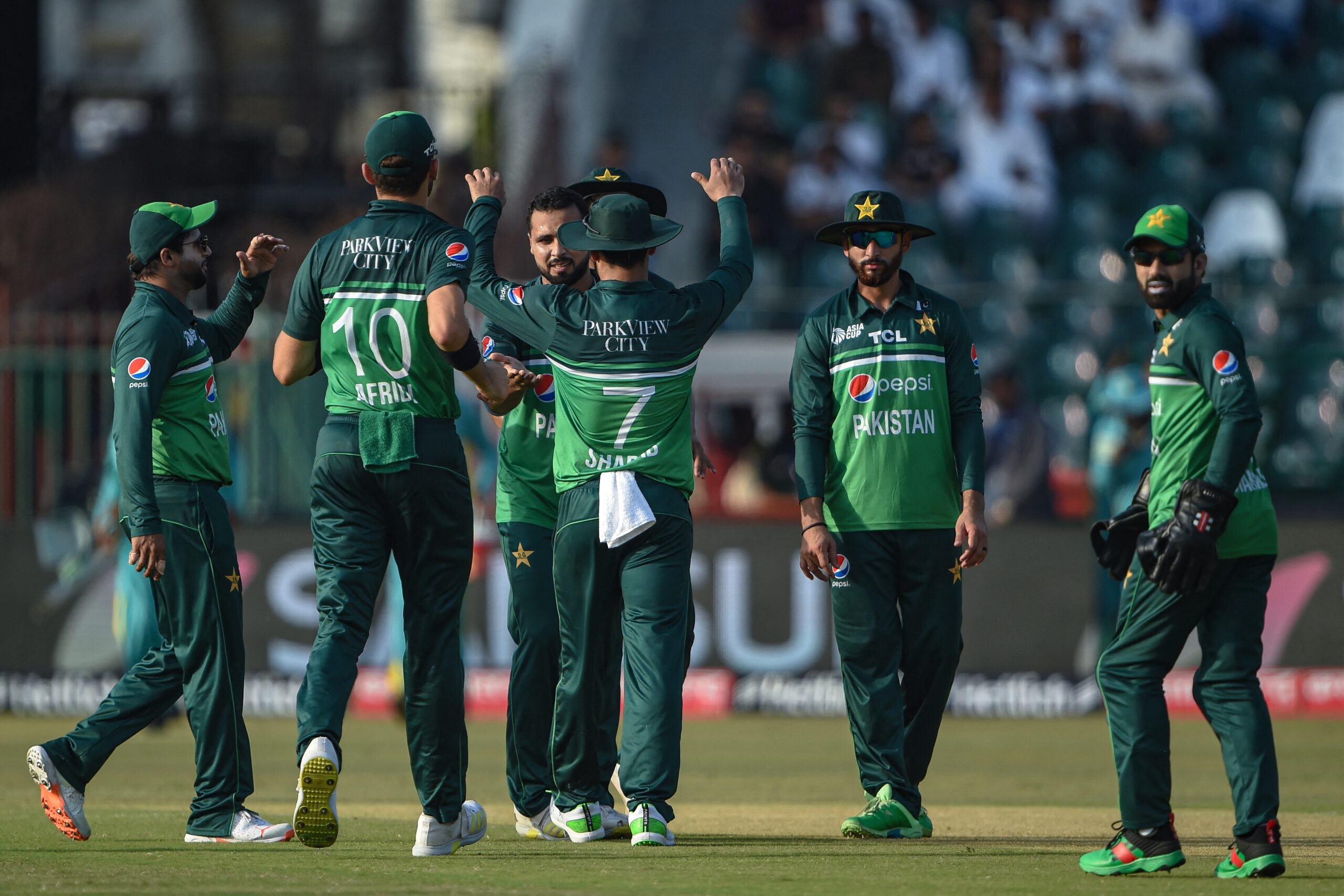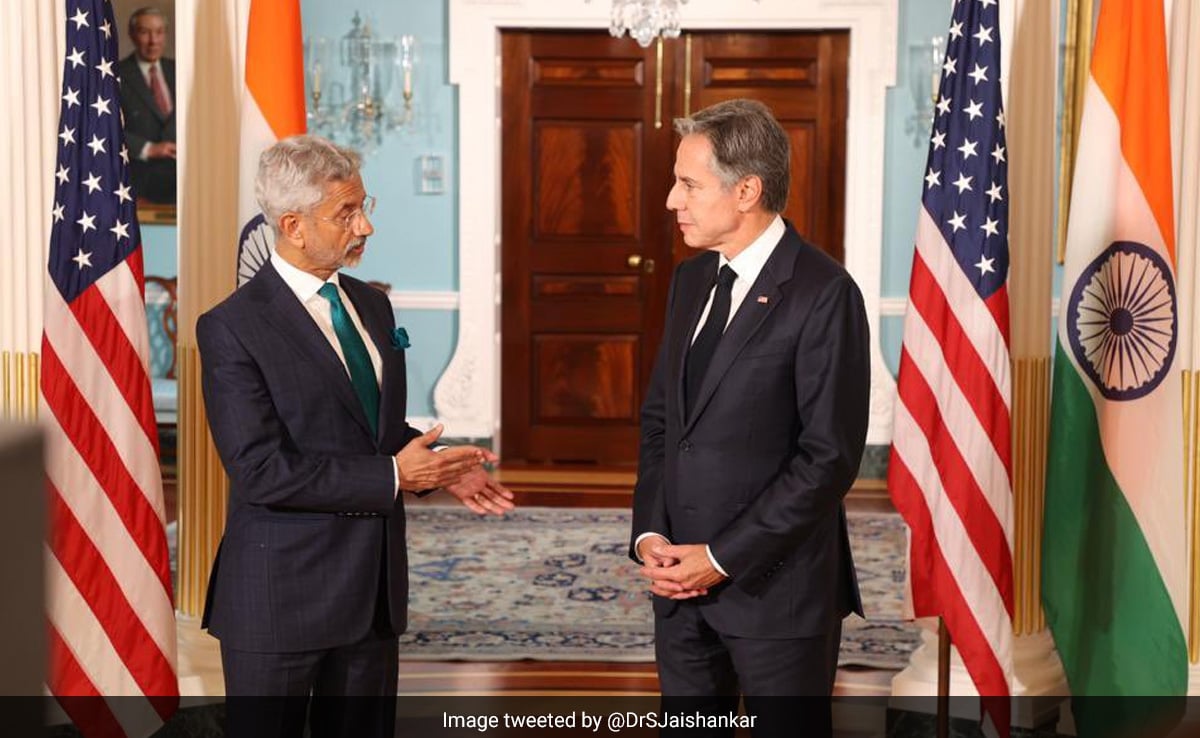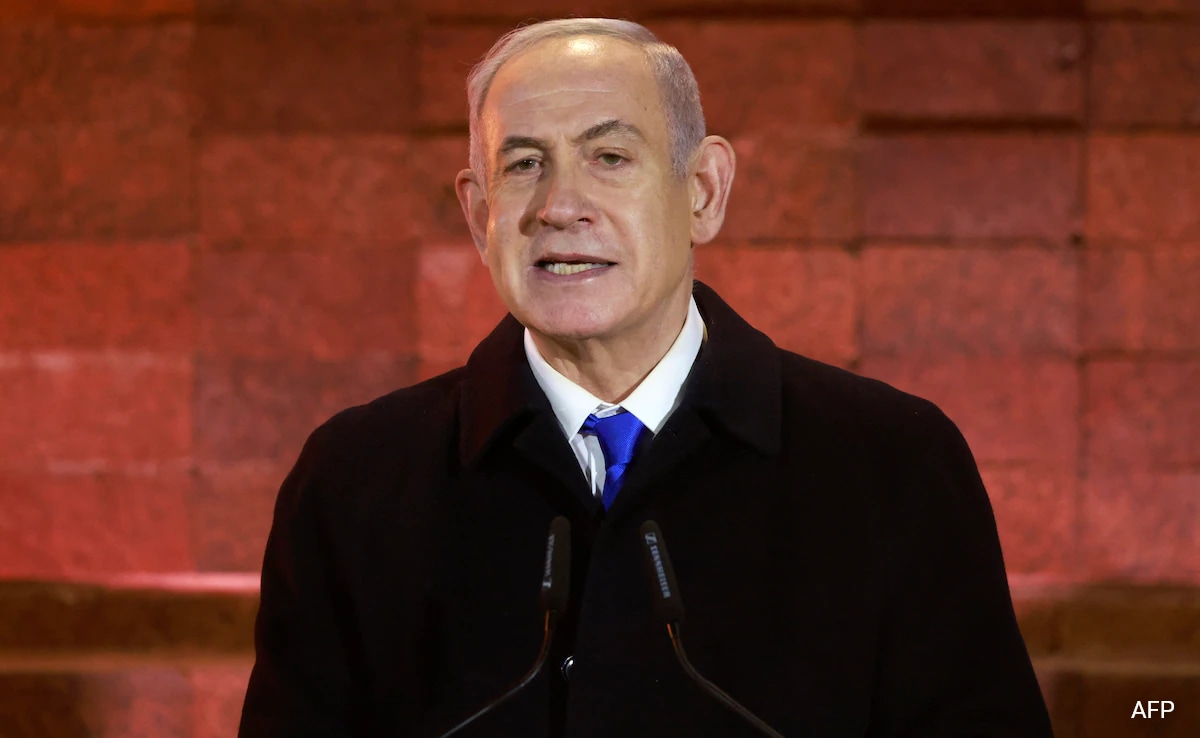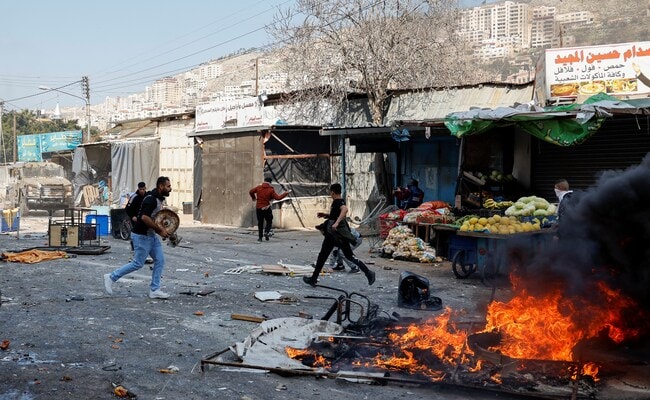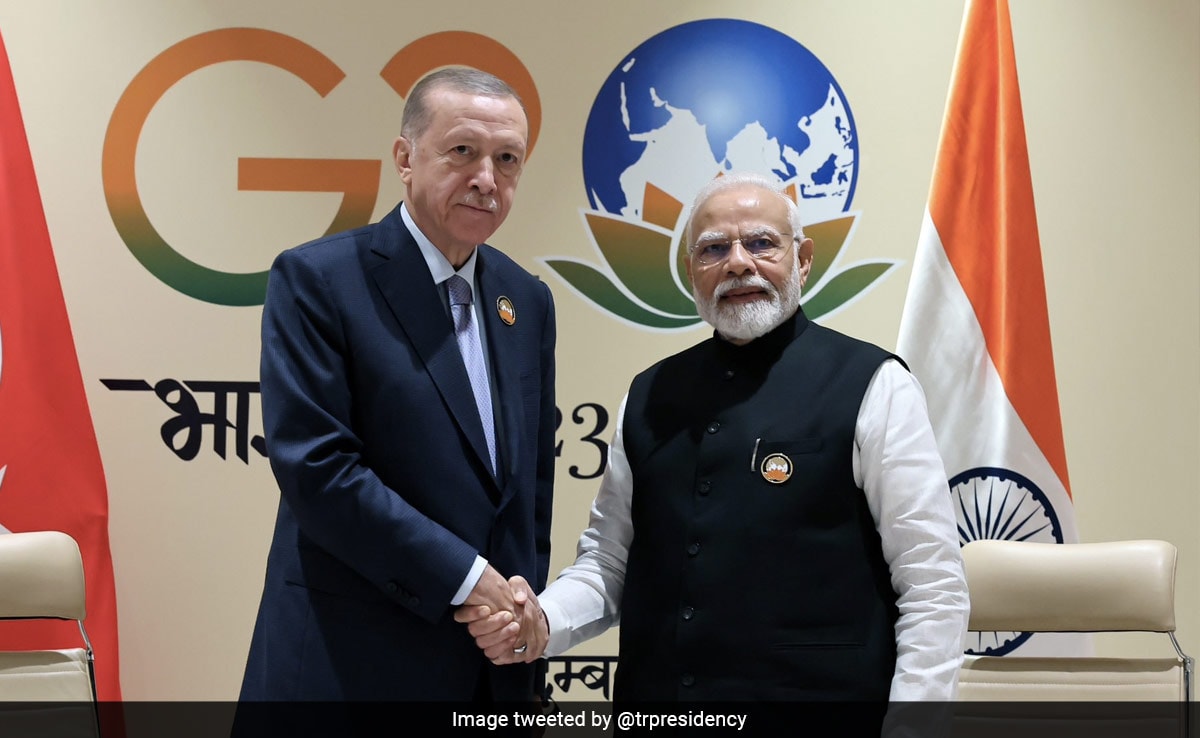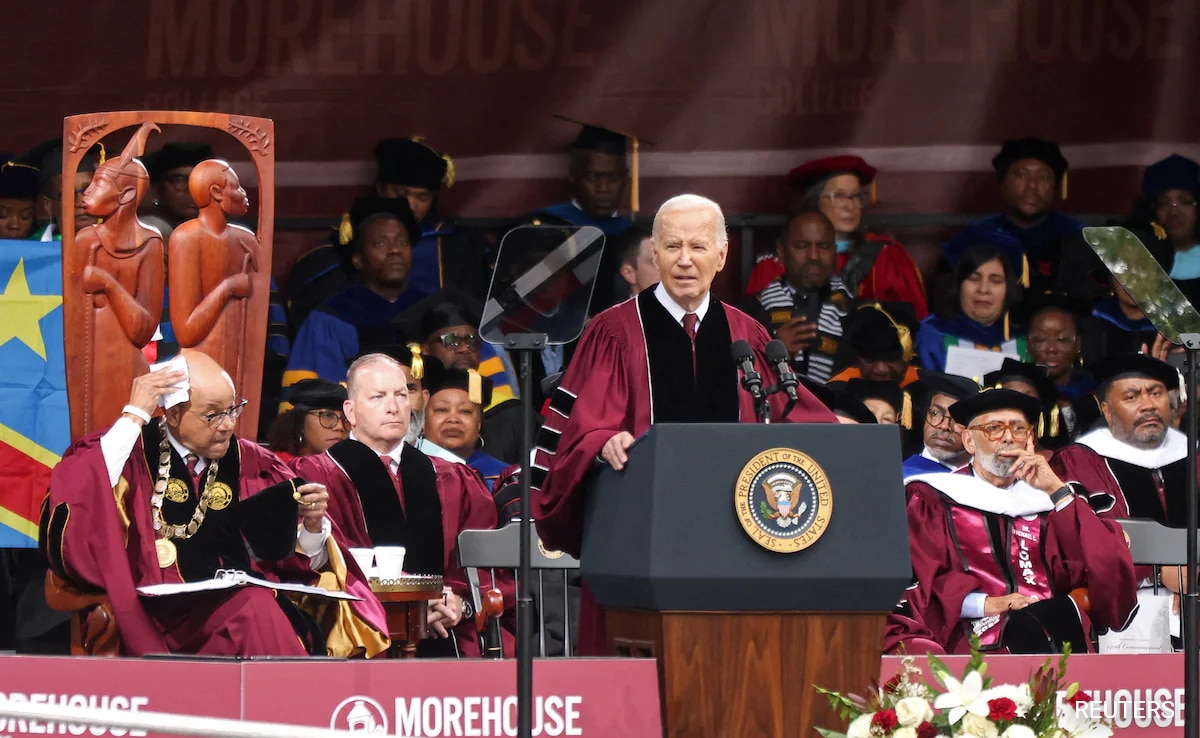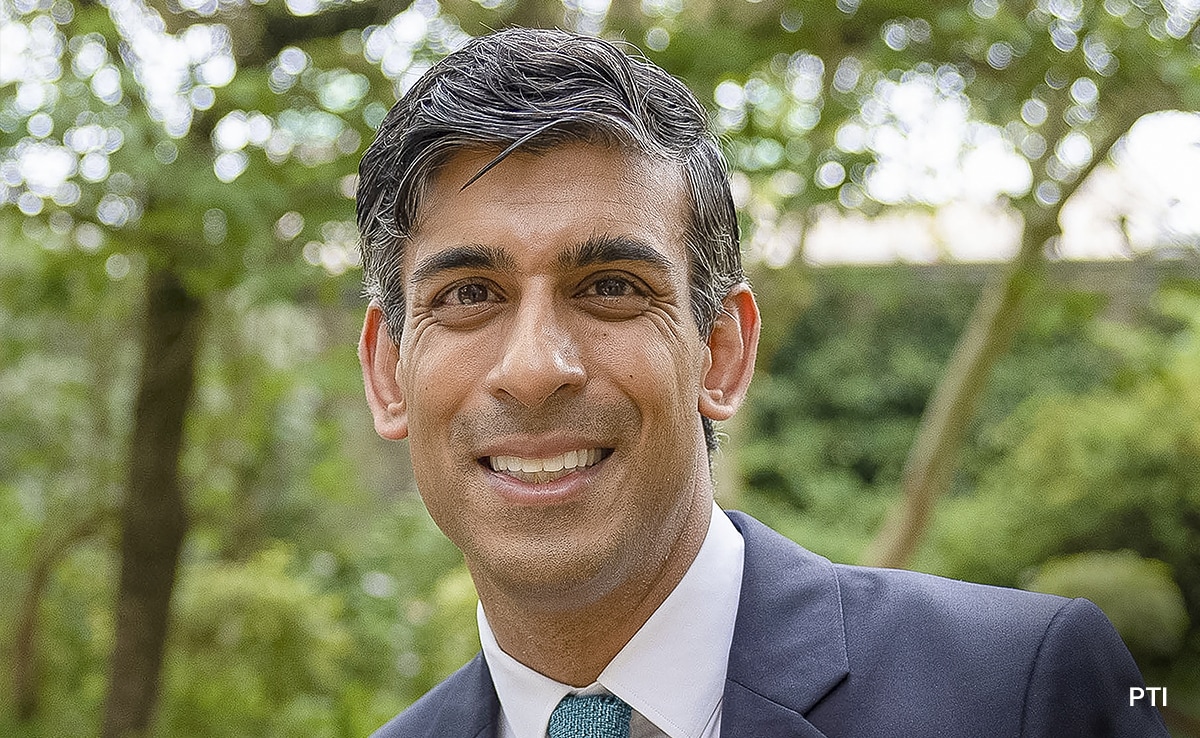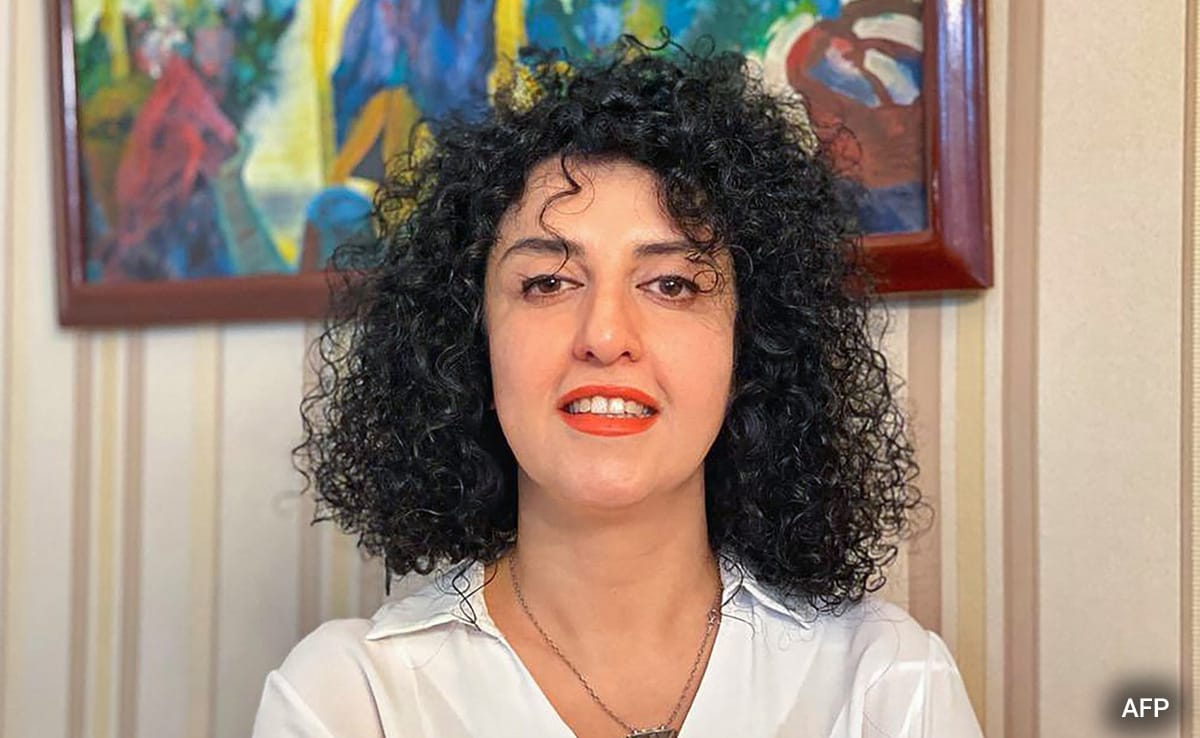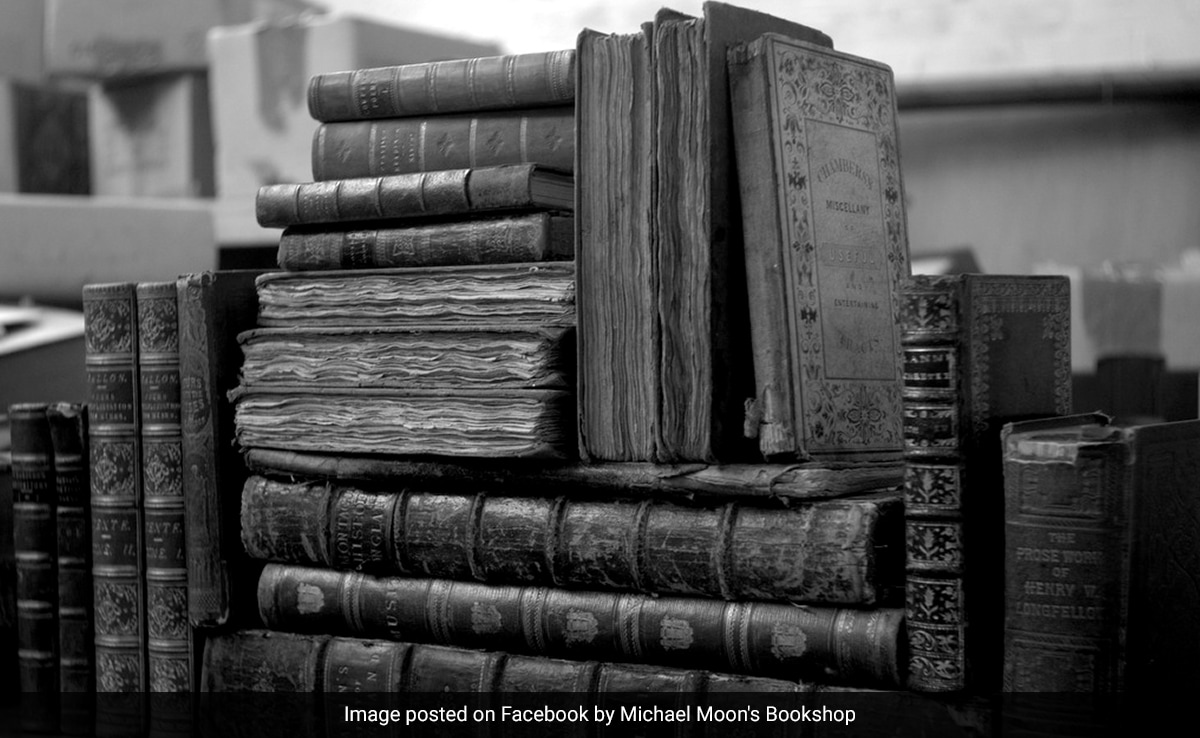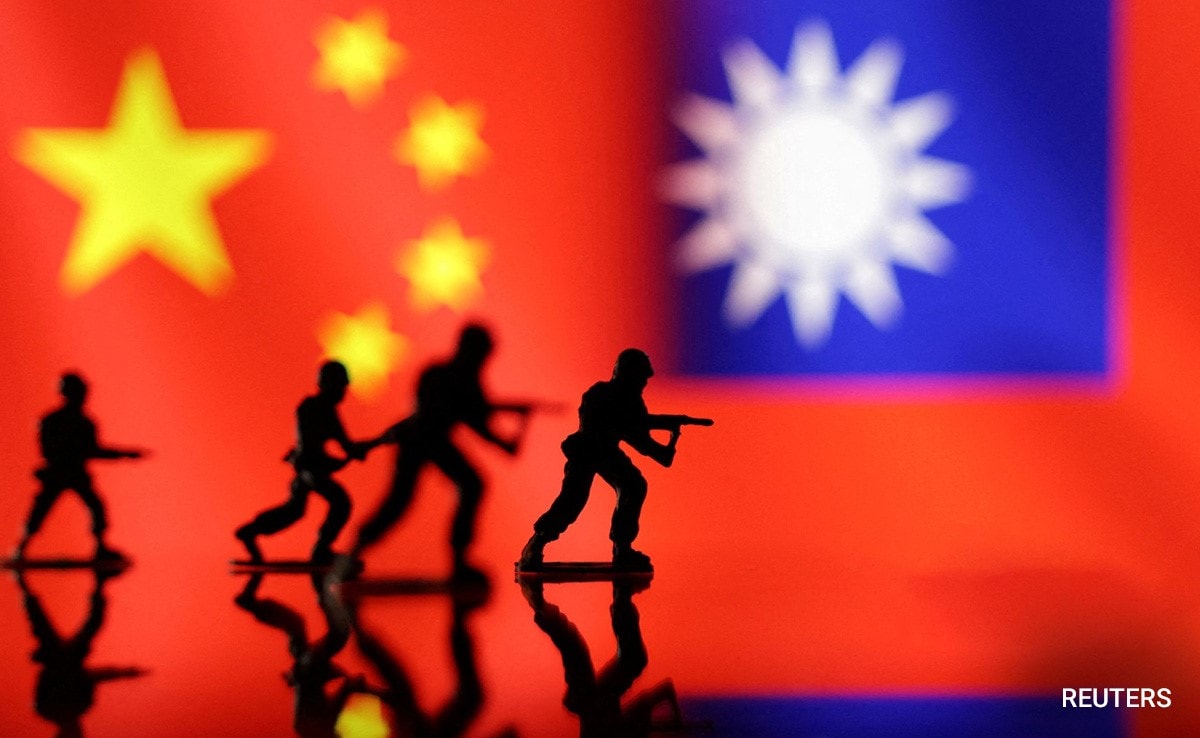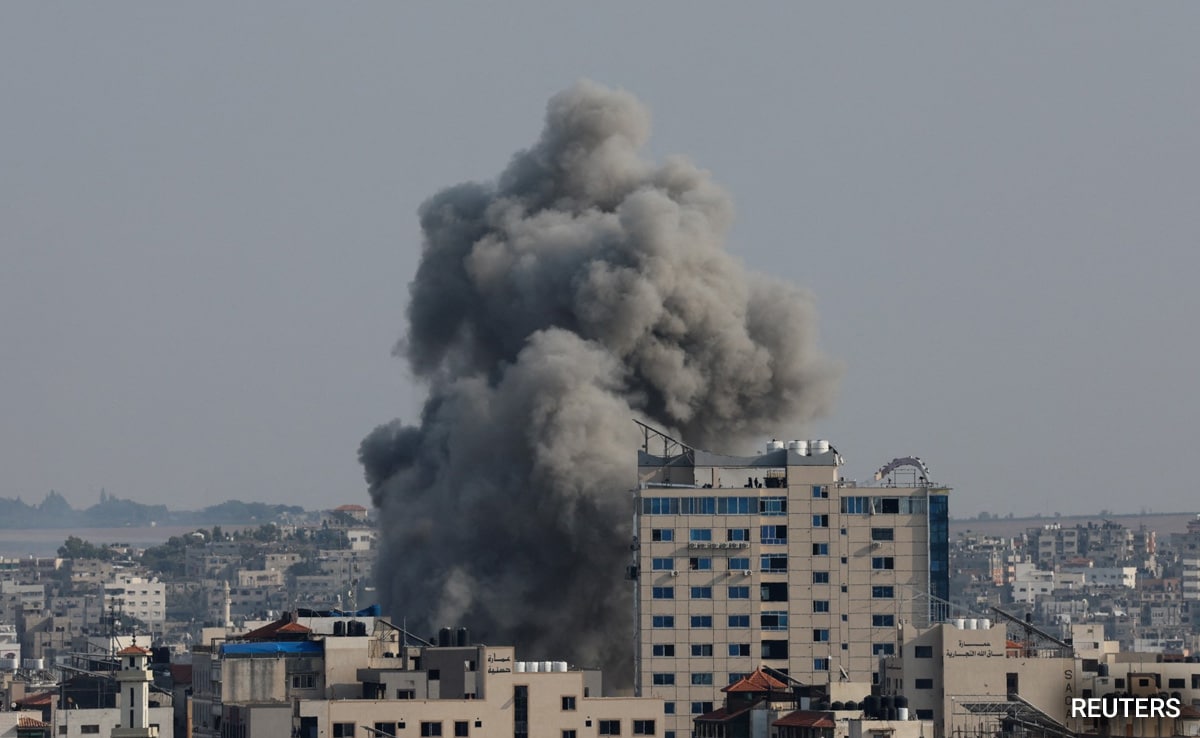In his statement, the prosecutor said that “Israel has intentionally and systematically deprived the civilian population in all parts of Gaza of objects indispensable to human survival.”
Updated – May 20, 2024 11:53 pm IST
Published – May 20, 2024 04:53 pm IST
Israeli Prime Minister Benjamin Netanyahu attends a press conference.
| Photo Credit: AP
The chief prosecutor of the International Criminal Court said May 20 he is seeking arrest warrants for leaders of Israel and Hamas, including Israeli Prime Minister Benjamin Netanyahu, over actions taken during their seven-month war.
Karim Khan said that he believes Mr. Netanyahu, his Defense Minister Yoav Gallant, and three Hamas leaders — Yehia Sinwar, Mohammed Deif and Ismail Haniyeh — are responsible for war crimes and crimes against humanity in the Gaza Strip and Israel.
A panel of three judges will consider the prosecutor’s evidence and determine whether to issue the arrest warrants and allow a case to proceed.
Israel is not a member of the court, so even if the arrest warrants are issued, Mr. Netanyahu and Mr. Gallant do not face any immediate risk of prosecution. But Mr. Khan’s announcement deepens Israel’s isolation as it presses ahead in Gaza, and the threat of arrest could make it difficult for the Israeli leaders to travel abroad.
Israeli Foreign Minister Israel Katz said the chief prosecutor’s decision to seek arrest warrants against Israel’s leaders is “a historic disgrace that will be remembered forever.” He said he would form a special committee to fight back against any such action and would work with world leaders to ensure that any such warrants are not enforced on Israel’s leaders.
Also read: A brief history of starvation as a ‘war crime’ | Explained
The Hamas militant group denounced the ICC prosecutor’s request to seek the arrests of its leaders.
Israeli leaders condemn ICC prosecutor
Benny Gantz, a former military chief and member of Israel’s War Cabinet with Mr. Netanyahu and Mr. Gallant, harshly criticized Mr. Khan’s announcement, saying Israel fights with “one of the strictest” moral codes, respects international law and has a robust judiciary capable of investigating itself.
“The State of Israel is waging one of the just wars fought in modern history following a reprehensible massacre perpetrated by terrorist Hamas on the 7th of October,” he said. “The prosecutor’s position to apply for arrest warrants is in itself a crime of historic proportion to be remembered for generations.
Other Israeli leaders, including opposition leader Yair Lapid, also condemned the ICC prosecutor.
Six months of Israel-Hamas war: revisiting 10 key moments in pictures
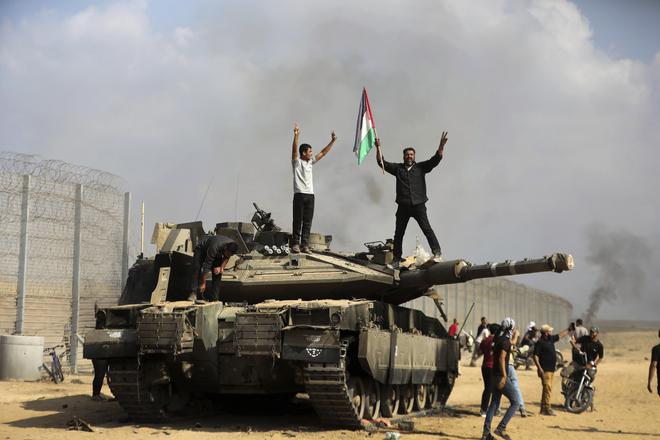
At dawn on October 7, at the end of the Jewish holiday of Sukkot, hundreds of Hamas fighters infiltrate Israel from Gaza by land, sea and air. They kill civilians in the streets, in their homes and at a desert music festival, and attack troops in army bases. They bring around 250 hostages back to Gaza, some of them now dead. Israel vows to destroy Hamas and begins bombing Gaza.
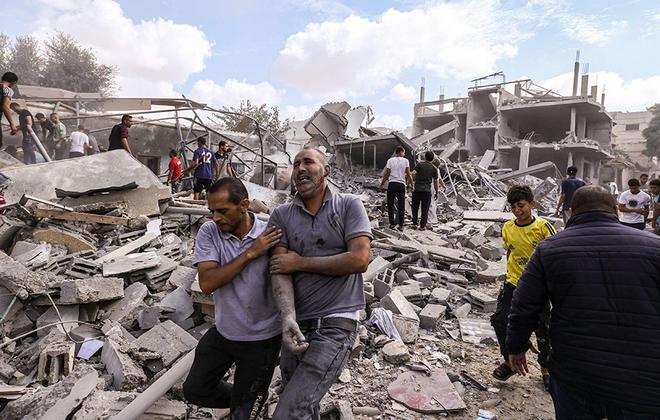
On October 13, Israel calls on civilians in northern Gaza to move south within 24 hours, declaring the north, which includes Gaza City, a war zone. Hundreds of thousands of Palestinians flee to the south of the Gaza Strip as entire districts in the north are razed to the ground.
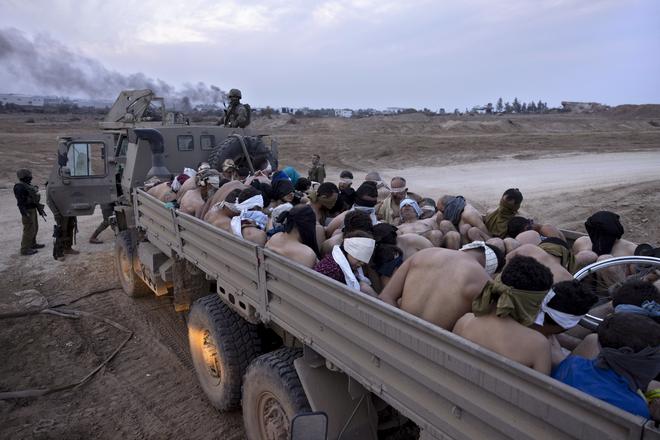
On October 27, Israeli tanks roll into Gaza at the start of a ground offensive. The troops fight their way towards Gaza City.
On November 15, Israeli troops launch a night-time raid on Al-Shifa hospital, Gaza’s biggest medical facility where bodies had been piling up after food, fuel and anaesthetics ran out. The raid causes an international outcry. Israel claims Hamas is running a command centre below the hospital, which the armed group denies.
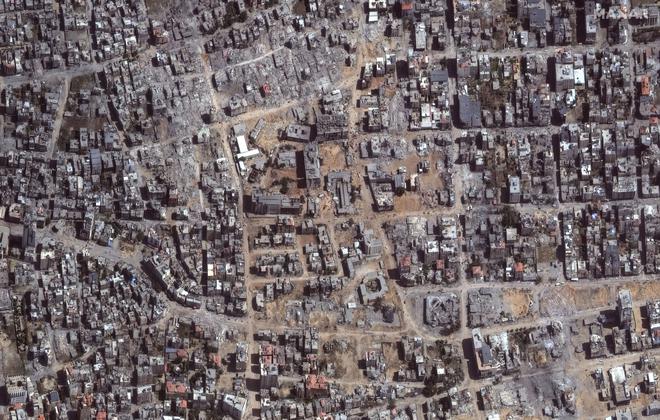
This satellite image provided by Maxar Technologies shows an overview Al Shifa hospital and surroundings in Gaza City on April 1, 2024. In March, Israel again targets the hospital in an intensive two-week operation that leaves hundreds dead and the complex in ruins.
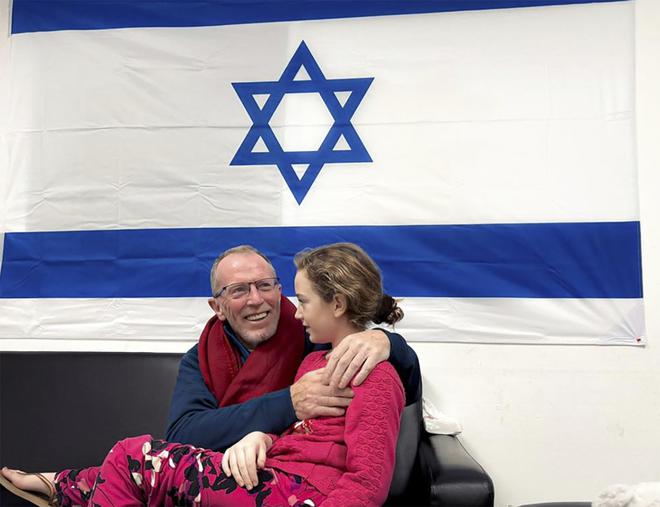
On November 24, a week-long truce between Israel and Hamas negotiated in talks mediated by Qatar goes into effect. Hamas releases 80 Israeli hostages over seven days in return for 240 Palestinians held in Israeli prisons. Twenty-five other hostages, mainly Thai farm workers, are released outside of the deal.
In this photo provided by the Israeli Army, Emily Hand, a released hostage, reunites with her father on November 26, 2023, in Israel.
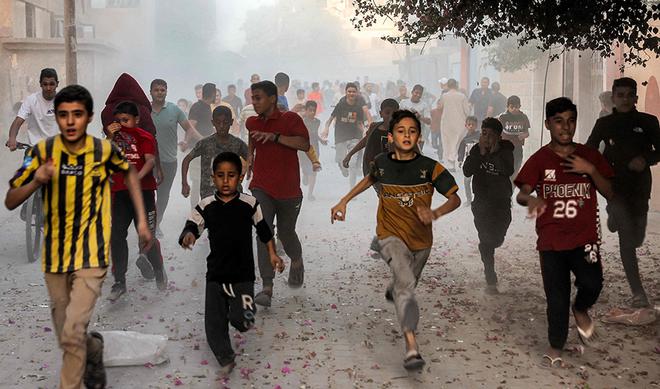
As part of week-long truce, Israel allows more aid into Gaza during the pause but the humanitarian situation remains dire. When the war resumes, Israel expands its actions into southern Gaza. Seen here are Palestinian children running as they flee from Israeli bombardment in Rafah in the southern Gaza Strip on November 6, 2023.
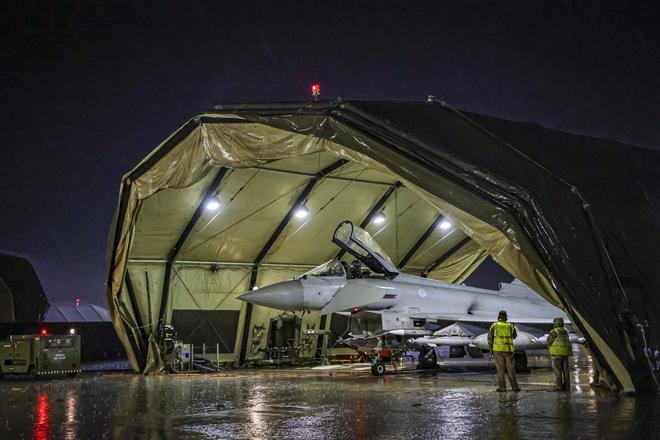
On January 12, the US and Britain launch air strikes on targets in rebel-held Yemen after weeks of attacks on Red Sea shipping by the Iran-backed Houthis acting in solidarity with Palestinians in Gaza. The strikes add to fears of a regional war.
In an interim ruling on January 26 in a case brought by South Africa, the International Court of Justice finds it “plausible” that Israel’s acts could amount to “genocide”. The world’s top court orders Israel to do “everything” to prevent any acts of genocide in Gaza but stops short of ordering a halt to the war.
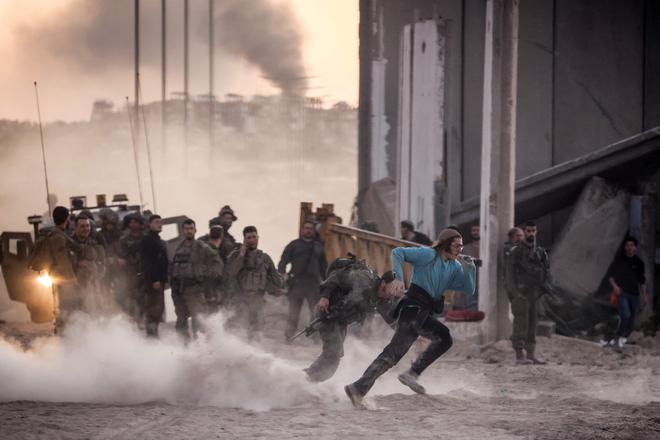
On February 29, Israeli forces open fire on desperate residents of northern Gaza who rush towards a convoy of food aid trucks, saying they believed they “posed a threat”. Gaza’s health ministry says 115 people were shot dead and hundreds wounded in what it calls a “massacre”.
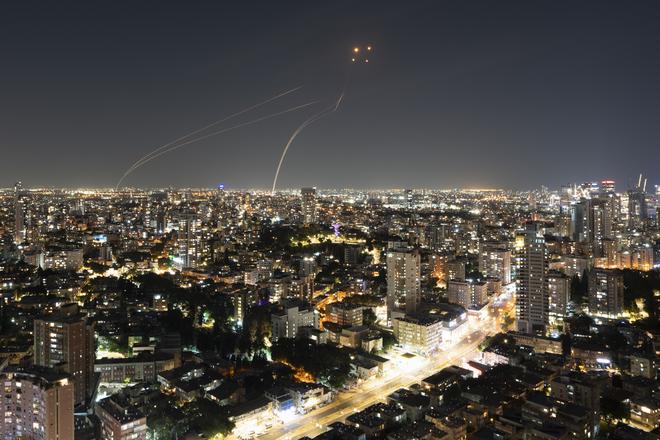
At dawn on October 7, at the end of the Jewish holiday of Sukkot, hundreds of Hamas fighters infiltrate Israel from Gaza by land, sea and air. They kill civilians in the streets, in their homes and at a desert music festival, and attack troops in army bases. They bring around 250 hostages back to Gaza, some of them now dead. Israel vows to destroy Hamas and begins bombing Gaza.
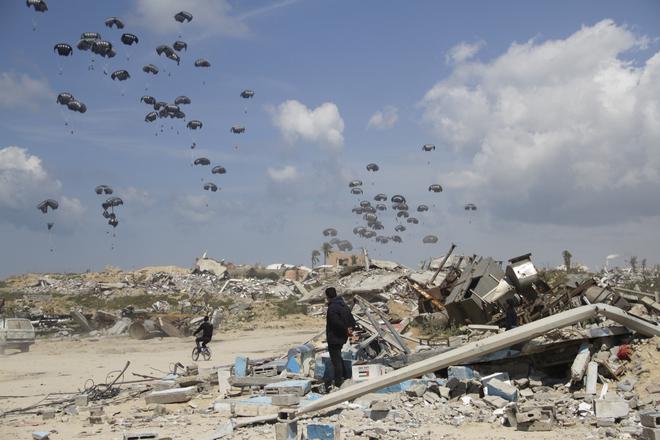
Humanitarian aid is airdropped to Palestinians over Gaza City, Gaza Strip on March 25, 2024.
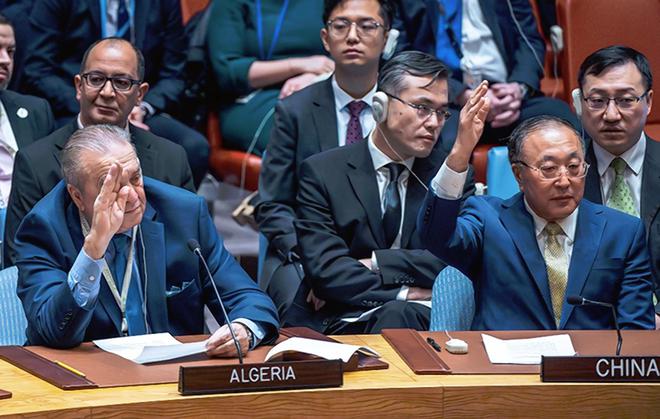
The US, Jordan and other countries begin airdropping food into Gaza. On March 15, the first food shipment along a new maritime corridor arrives in Gaza.
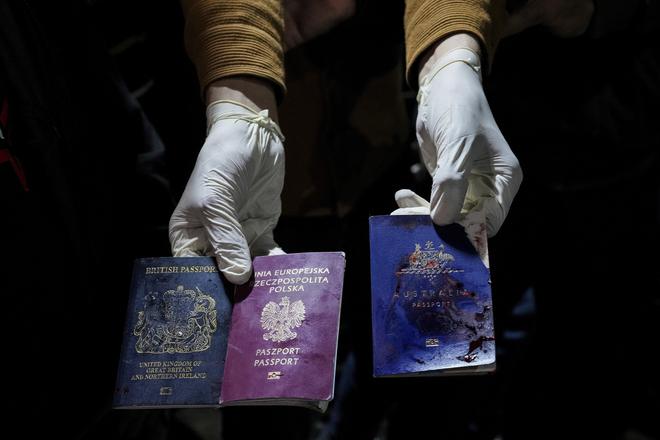
On April 2, seven aid workers from the US charity World Central Kitchen are killed in an Israeli strike when leaving a warehouse in central Gaza where they had just unloaded a portion of food aid from a ship. The dead are Australian, British, Palestinian, Polish and US-Canadian.
1/3
“,””],
responsive:{
0:{
loop:false,
autoplay:false,
nav: true,
dots:false,
touchDrag:true,
mouseDrag:true,
items:1
}
}
});
});
In a statement, Hamas accused the prosecutor of trying to “equate the victim with the executioner.” It said it has the right to resist Israeli occupation, including “armed resistance.” It also criticized the court for seeking the arrests of only two Israeli leaders and said it should seek warrants for other Israeli leaders.
Both Sinwar and Deif are believed to be hiding in Gaza as Israel tries to hunt them down. But Haniyeh, the supreme leader of the Islamic militant group, is based in Qatar and frequently travels across the region.
We will always stand with Israel, says Biden
U.S. President Joe Biden condemned the ICC’s chief prosecutor’s “outrageous” attempt to seek arrest warrants for the Israeli leaders. In a sharply worded statement, Mr. Biden said “whatever this prosecutor might imply, there is no equivalence — none — between Israel and Hamas.”
“We will always stand with Israel against threats to its security,” he added.
Aftermath of October 7 attack
The latest war between Israel and Hamas began on Oct. 7, when militants from Gaza crossed into Israel and killed some 1,200 people, mostly civilians, and took 250 others hostage.
The Israeli offensive has killed over 35,000 Palestinians, at least half of them women and children, according to the latest estimates by Gaza health officials. The Israeli offensive has also triggered a humanitarian crisis in Gaza, displacing roughly 80% of the population and leaving hundreds of thousands of people on the brink of starvation, according to U.N. officials.
Speaking of the Israeli actions, Mr. Khan said in a statement that “the effects of the use of starvation as a method of warfare, together with other attacks and collective punishment against the civilian population of Gaza are acute, visible and widely known…. They include malnutrition, dehydration, profound suffering and an increasing number of deaths among the Palestinian population, including babies, other children, and women.”
The United Nations and other aid agencies have repeatedly accused Israel of hindering aid deliveries throughout the war. Israel denies this, saying there are no restrictions on aid entering Gaza and accusing the United Nations of failing to distribute aid. The U.N. says aid workers have repeatedly come under Israeli fire, and also says ongoing fighting and a security vacuum have impeded deliveries.
Of the Hamas actions on Oct. 7, Mr. Khan, who visited the region in December, said that he saw for himself “the devastating scenes of these attacks and the profound impact of the unconscionable crimes charged in the applications filed today. Speaking with survivors, I heard how the love within a family, the deepest bonds between a parent and a child, were contorted to inflict unfathomable pain through calculated cruelty and extreme callousness. These acts demand accountability.”
Israel is under criticism
After a brief period of international support for its war, Israel has faced increasing criticism as the war has dragged on and the death toll has climbed. Israel is also facing a South African case in the International Court of Justice, the U.N.’s top court, accusing Israel of genocide. Israel denies those charges.
The ICC was established in 2002 as the permanent court of last resort to prosecute individuals responsible for the world’s most heinous atrocities — war crimes, crimes against humanity, genocide and the crime of aggression.
The U.N. General Assembly endorsed the ICC, but the court is independent.
Dozens of countries don’t accept the court’s jurisdiction over war crimes, genocide and other crimes. They include Israel, the United States, Russia and China. The ICC becomes involved when nations are unable or unwilling to prosecute crimes on their territory. Israel argues it has a functioning court system.
The ICC accepted “The State of Palestine” as a member in 2015, a year after the Palestinians accepted the court’s jurisdiction.
The court’s chief prosecutor at the time announced in 2021 that she was opening an investigation into possible crimes on Palestinian territory. Israel often levies accusations of bias at U.N. and international bodies, and Netanyahu condemned the decision as hypocritical and antisemitic.
In 2020, then U.S. President Donald Trump authorized economic and travel sanctions on the ICC prosecutor and another senior prosecutor. The ICC staff were looking into U.S. and allies’ troops for possible war crimes in Afghanistan. Mr. Biden, whose administration has provided crucial military and political support for the Gaza offensive, lifted the sanctions in 2021.
Last year, the court issued a warrant for Russian President Vladimir Putin on charges of responsibility for the abductions of children from Ukraine. Russia responded by issuing its own arrest warrants for Khan and ICC judges.
Other high-profile leaders charged by the court include ousted Sudanese strongman Omar al-Bashir on allegations including genocide in his country’s Darfur region. Former Libyan leader Moammar Gadhafi was captured and killed by rebels shortly after the ICC issued a warrant for his arrest on charges linked to the brutal suppression of anti-government protests in 2011.

